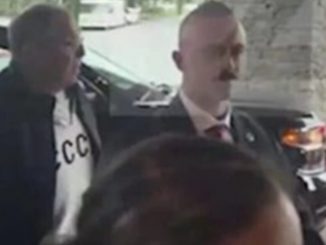
| Published June 4, 2025
Russian President Vladimir Putin has cast serious doubt on the viability of peace talks with Ukraine, following recent attacks on Russian infrastructure that he attributes to Ukrainian forces. In a televised government meeting, Putin labeled these incidents as “terrorist attacks,” asserting that Ukraine aims to use any ceasefire to rearm and prepare further assaults.
Specifically, Putin referred to explosions on bridges in Russia’s Bryansk and Kursk regions, including an attack that resulted in seven deaths and over 100 injuries. He accused the Ukrainian government of orchestrating these attacks to derail ongoing peace negotiations, stating, “The current Kyiv regime does not need peace at all.”
In response to Ukraine’s proposal for a 30-day ceasefire, Russia offered a shorter two-to-three-day truce to facilitate the retrieval of fallen soldiers. However, Ukrainian officials have rejected this limited ceasefire, viewing it as insufficient.
These developments underscore the deepening mistrust between the two nations and the challenges facing diplomatic efforts to resolve the conflict.
The implications of Putin’s latest accusations and his rejection of broader ceasefire talks are significant—both strategically and diplomatically:
1. Stalemate Hardens
Putin’s framing of Ukrainian actions as “terrorist attacks” signals a deeper entrenchment in the conflict. By rejecting ceasefire overtures and publicly questioning Kyiv’s motives, he is:
-
Undermining diplomatic channels.
-
Justifying continued or escalated military operations.
-
Positioning Russia as the victim to both domestic and international audiences.
2. Delegitimizing Ukrainian Diplomacy
Labeling Ukraine’s push for a ceasefire as a cover to “rearm and prepare attacks” is designed to:
-
Undermine Ukraine’s credibility in international peace forums.
-
Paint any future ceasefire efforts as cynical or manipulative.
This makes it politically harder for Western leaders to pressure Kyiv into negotiations without looking like they’re rewarding deception.
3. Internal Messaging to Justify War Continuation
Putin’s public statements serve a domestic narrative: that the war isn’t just a military operation, but a defensive action against “terror.” This:
-
Justifies the human and economic cost of war.
-
Builds public resilience against peace overtures seen as premature or unsafe.
4. Reduced Space for Neutral Mediation
By calling peace efforts suspect, Putin signals less openness to neutral third-party brokers. It complicates initiatives from countries like China, Turkey, or the Vatican aiming to restart dialogue.
Overall Takeaway:
Putin is using recent attacks to cast Ukraine as an untrustworthy, aggressive actor—deliberately sabotaging peace prospects. His rhetoric aims to justify continued war, harden Russian resolve, and discredit Kyiv’s diplomatic efforts on the world stage. This marks a strategic shift away from negotiations and signals that a diplomatic resolution is farther off than ever.
SOURCE: THE MOSCOW TIMES – Putin Accuses Ukraine of Wanting Ceasefire to Rearm and Prepare ‘Terrorist Attacks’
NEWSMAX – Putin: Ukrainian Attacks on Bridges Were Terrorist Attacks
REUTERS – Putin openly questions peace talks after blaming Ukraine for deadly bridge attack in Russia
TVP WORLD – UPDATE: Putin questions point of peace talks, accusing Ukraine of deadly ‘terror’ attacks





Be the first to comment